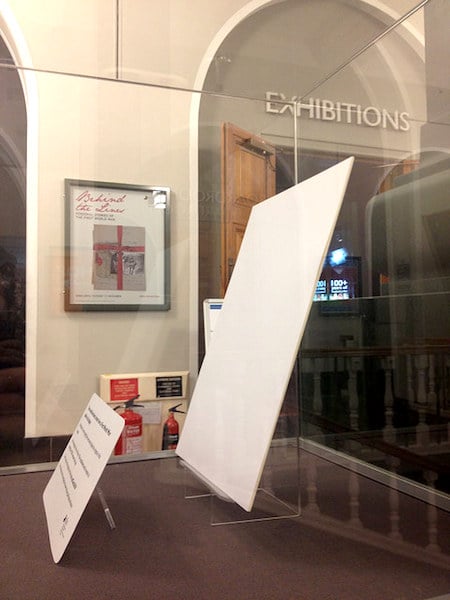
Photo: Courtesy National Library of Scotland
The Imperial War Museums, the National Library of Scotland, and other institutions across the UK, are exhibiting empty vitrines to protest against current copyright laws, which won’t allow the public display of unpublished works until 2039, the Art Newspaper reports. Dubbed “Catch 2039” by campaigners, the issue is particularly frustrating for institutions which want to display original letters and diaries written by soldiers during the First World War, to coincide with the centenary commemorations.
Under the current law, “orphan works” (those whose rightsholders could not be identified or contacted), as well as works by authors born before 1969 which had remained unpublished by August 1989, are under copyright until 2039, whatever their age.
In protest, nine UK institutions—including the Imperial War Museums, the National Library of Scotland, the University of Leeds, the Chartered Institute of Library and Information Professionals, and the Libraries and Archives Copyright Alliance—have launched the Free Our History campaign, which seeks to reduce the term of copyright protection of affected works to the author’s lifetime plus 70 years.
On the same day that the campaign began, the UK government introduced a new copyright regulation which allows “orphan works” to be reproduced on websites, books, and in other media (see “91 Million Orphan Artworks Are Now Free To The Public”). But campaigners, such as the copyright expert Naomi Korn, argue that this new legislation does not address the crux of the matter: that up to 50 percent of “orphan works” are orphans because of the 2039 provisions. This means that the display of the originals of very old letters in museums and libraries is forbidden or needs a licence.
The Imperial War Museums estimate that up to 25 percent of their 1.75 million collection of documents are “orphan works”, TAN reports. It’s also been estimated that up to 50 percent of all archival records in the UK fall in the category of “orphan works”.